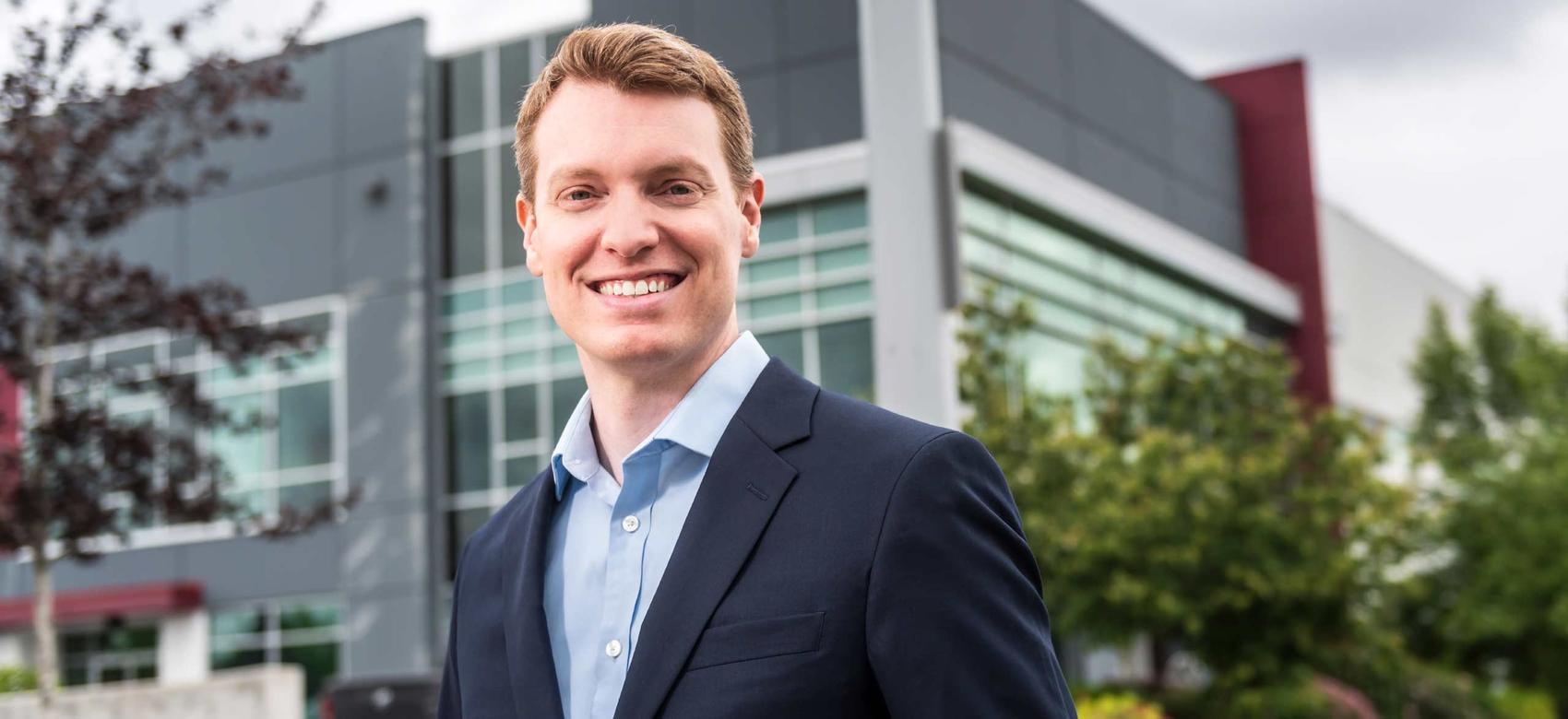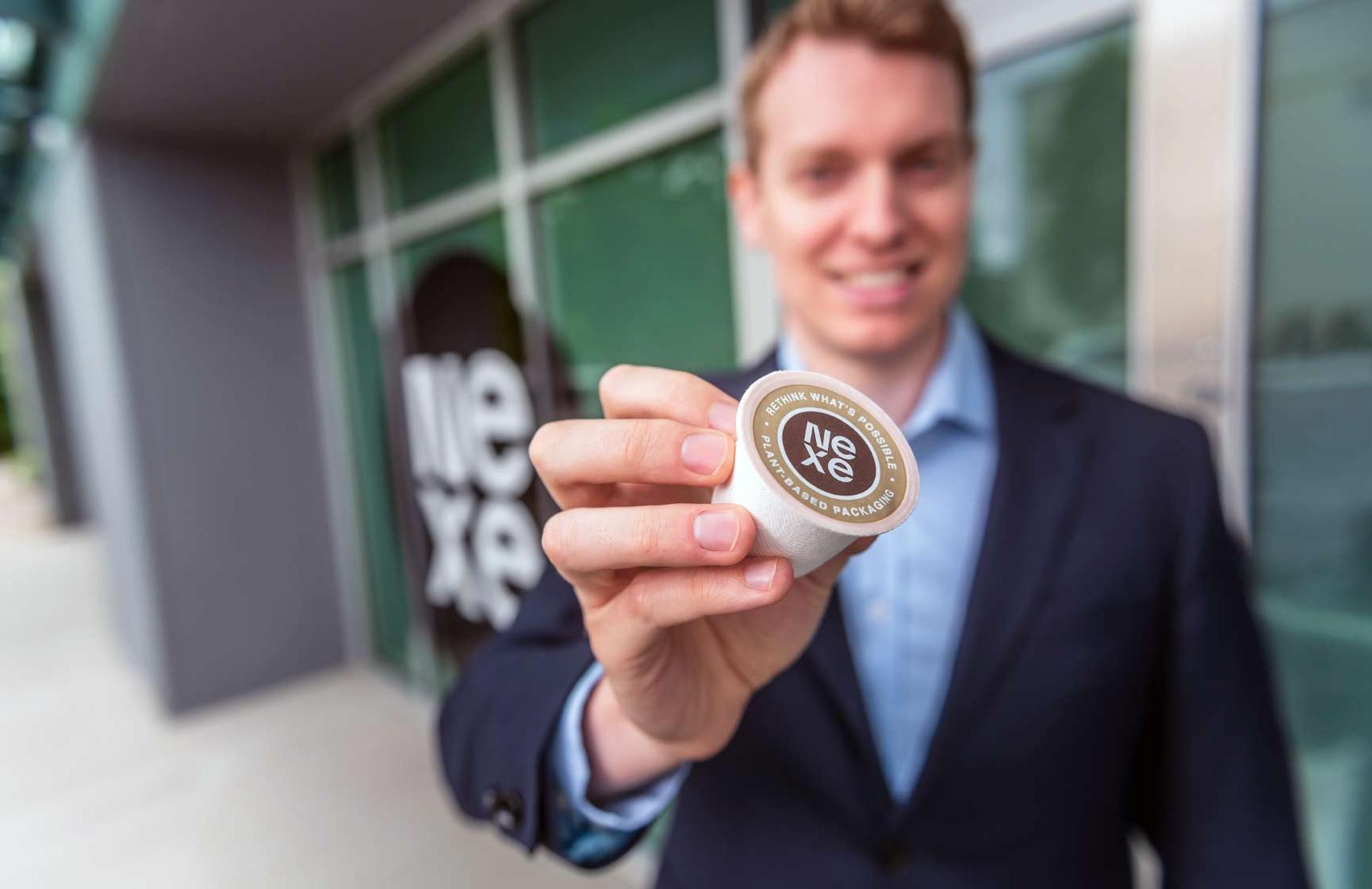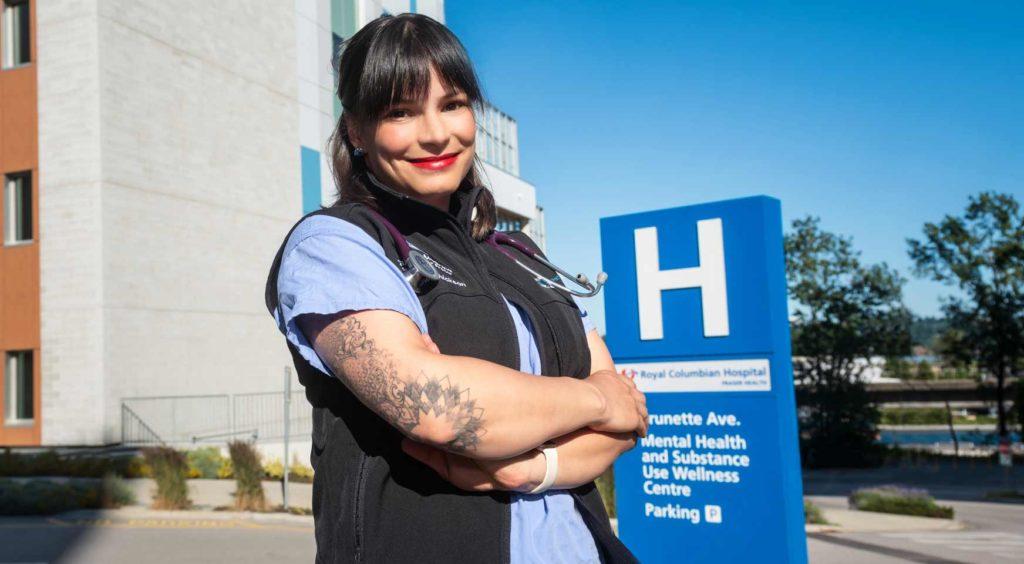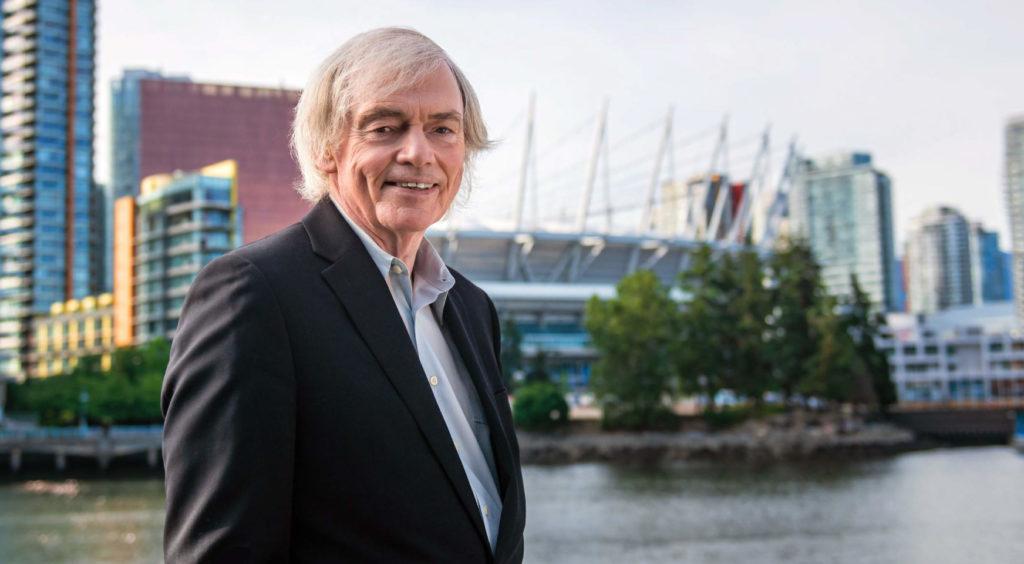Surrey-based UBC partnership highlights the power of regional connections
By Julia Waring

Change starts locally. Here’s how people working in Metro Vancouver and the Fraser Valley are creating global climate change solutions while growing BC jobs and economic opportunities.
As bans on single-use plastic are instituted across the world, brands are increasingly seeking renewable and sustainably sourced materials for their packaging, such as higher-value bioplastics derived from biomass like wood or plants. To seize this opportunity, local companies like Surrey-based NEXE Innovations are working with researchers at the UBC BioProducts Institute to derive products from renewable resources.
NEXE worked with Dr. Zachary Hudson, an associate professor at UBC and Canada Research Chair in Sustainable Chemistry, and a team of researchers to create a fully compostable Keurig K-Cup-compatible coffee pod that composts completely in as little as 35 days. In 2020, the company went public.
“Every year, more than 40 billion single-use coffee pods end up in landfills. If they’re made of plastic, they could be sitting there for hundreds or thousands of years,” says Dr. Hudson.
Building an innovation network
The NEXE pod exemplifies the innovation that happens when industry partners are closely connected to an anchor research institution like UBC, says Paul Cubbon, Assistant Dean of Innovation at the UBC Sauder School of Business.
“Easy access enables the spontaneous interactions between people that fuel innovation.”
Paul Cubbon, Assistant Dean of Innovation,
UBC Sauder School of Business
Cubbon points to the emergence of BC’s thriving life sciences industry along Vancouver’s Broadway Corridor as an example of the way connectivity is fostering a rich line of UBC spin-offs. He says that shortened commute times, coupled with the ability to move sustainably around Metro Vancouver, will allow more companies to leverage UBC’s expertise and facilities to develop new products, create jobs and contribute to a stronger economy.
“Easy access enables the spontaneous interactions between people that fuel innovation,” he says. “If we were better connected to the regional public transit network, it would be a game changer for more frequent collaborative meetings.”
For NEXE, new transit initiatives are key to addressing the talent recruitment challenges posed by the long commutes between its factory and the rest of the region. The company is currently retooling its manufacturing facility in Surrey for mass production and will be growing its team throughout this year.
“In general, it is a challenge for companies that are that far from downtown Vancouver to attract talent,” says Dr. Hudson. “We see biotech and computer science companies do quite well in Vancouver. But for companies that do a lot of manufacturing and need that physical space, attracting engineering talent can be difficult.”

Widening the talent pool
With a recent announcement from the federal and provincial governments committing to funding the next phase of planning for the extension of SkyTrain to the Vancouver campus, there is reason for optimism among industry leaders. Enabling more people to move efficiently between their homes, post-secondary research and innovation hubs, and major job centres is crucial to supporting Metro Vancouver’s emerging bioproducts industry. Nationally, the sector contributes approximately $4 billion in annual revenues, according to Agriculture and Agri-Food Canada.
NEXE alone has the potential to attract significant numbers of new jobs to the region. The single-use global coffee pod industry is expected to reach US$29.2 billion by 2025, according to market reports. Nespresso-compatible pods will be available this year, and the company has been fielding inquiries from major coffee producers around the globe who are interested in their proprietary pod, according to Dr. Hudson. “If we could make a billion of these a year, we would sell them all,” he says.
As more companies like NEXE break ground throughout the region, better connectivity will help position Metro Vancouver as an innovation network that links industry, research and people together.
Julia Waring is a freelance writer for UBC Campus and Community Planning.
Feel free to republish the text of this article, but please follow our guidelines for attribution and seek any necessary permissions before doing so. Please note that images are not included in this blanket licence.


